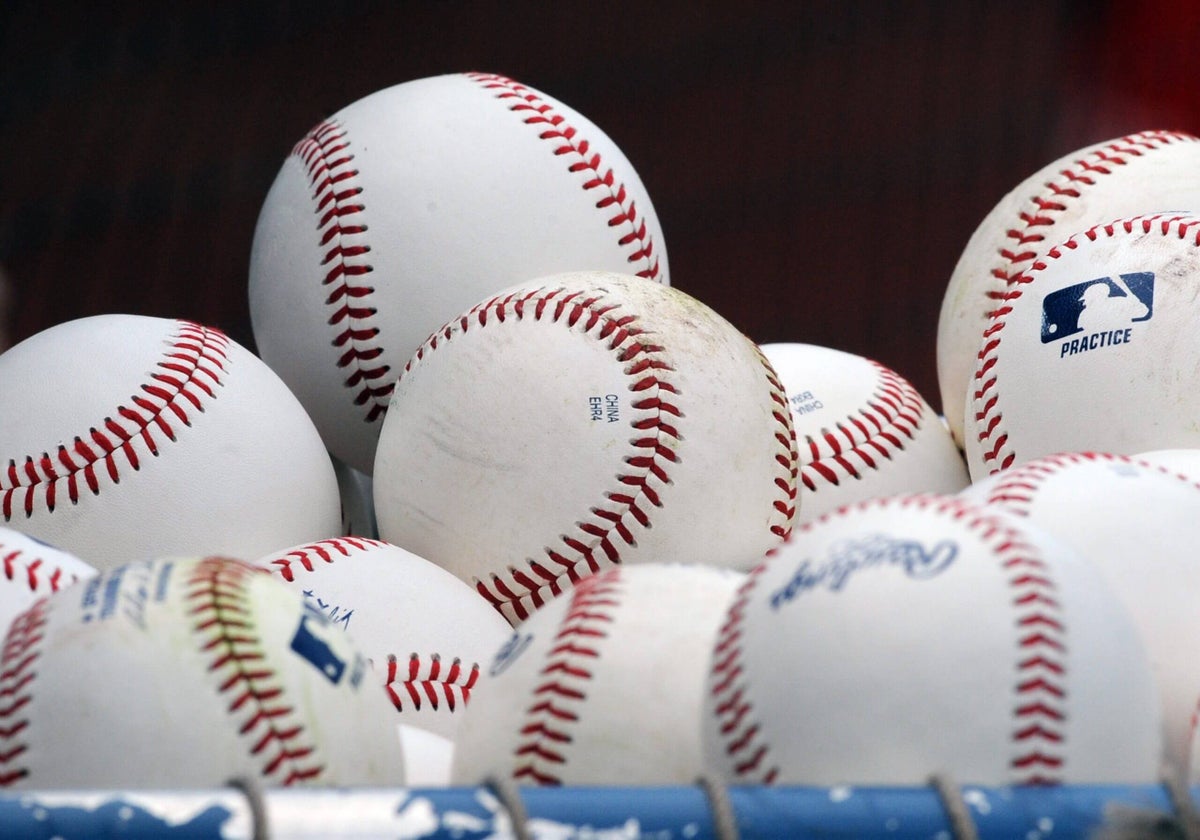The Major League Baseball Players Association has banned prominent player agent Jim Murray of WME Sports for multiple years and fined him for double-dealing with the commissioner’s office during sensitive labor negotiations in 2020, people briefed on a case settlement who were not authorized to speak publicly told The Athletic. Ian Happ, Adam Ottavino Anthony Volpe and Andy Pettitte are among Murray’s former clients.
Murray is decertified for four years — meaning he cannot negotiate playing contracts — but he has carve-outs in the settlement that allow him to advise existing clients in other ways, a person briefed on the settlement said. He was fined about $100,000, and if he wants to reapply to be a certified agent in four years, he would have to pay another $150,000, the source said.
The MLBPA, which certifies and governs player agents in the sport, alleged Murray revealed confidential union information to the league office and helped MLB craft proposals as the union and commissioner’s office fought over the workings of the 2020 season, which was shortened by the COVID-19 pandemic. The MLBPA reviewed communications Murray had with MLB commissioner Rob Manfred as well those the agent had with some of Manfred’s lieutenants, including deputy commissioner and lead labor negotiator Dan Halem and chief communications officer Pat Courtney.
Murray and the MLBPA reached a settlement on Wednesday, a day before the dispute was set to be heard by an arbitrator. The MLBPA initially banned Murray for life, which Murray appealed to arbitration. The hearing was preempted by the settlement.
The union and the league declined comment. The Athletic reached out to Murray and WME Sports for comment and will update if they respond.
This is not the first time Murray has faced professional repercussions. Murray received a hefty punishment from an arbitrator last year in a case brought against him by his former employer, Excel Sports Management.
In February 2024, an arbitrator ruled that Murray and another WME Sports agent, Michael Stival, flagrantly breached their contracts when they defected to the upstart WME from Excel, the firm where they made their names. Thirteen Excel players left for WME Sports with Murray and Stival, while several more left for other agencies.
“This case is exceptionally egregious,” arbitrator Michael Gottesman wrote in a 70-page ruling obtained by The Athletic. “WME knew full well that Murray and Stival would be breaching their contracts.”
Excel is run by another prominent agent, Casey Close, who established himself as Derek Jeter’s representative.
The Excel-WME proceeding produced documents relevant to the case the union brought against Murray.
When WME was recruiting Murray away from Excel, Murray submitted a biography to his potential new employer. Murray credited himself with bringing baseball back in 2020.
“Jim also played a significant role in unprecedented labor negotiations in 2020, helping bring baseball back on the field during the pandemic,” Murray wrote, per the arbitrator’s ruling in the Excel-WME case.
The union’s agent regulations cite the MLBPA as the players’ “exclusive bargaining agent” and have a section dedicated to conflicts of interest. The rules also forbid agents from attempting to negotiate “any provision that purports to have the effect of eliminating or reducing any Player right or benefit.”
Player agents are allowed to have some contact with the league, and ultimately, several large agencies have divisions that do business with teams and the league in other areas, such as sponsorships. The MLBPA previously raised conflict-of-interest concerns with Murray’s agency, WME Sports, at a time when its parent company, Endeavor, was buying minor-league baseball teams.
Player agents are not union negotiators, but they do influence the players they represent, and through those relationships, agents are always at least indirectly involved in collective bargaining.
In the past, though, agents have also tested the union’s tolerance for direct involvement. Ron Shapiro, a prominent player agent during baseball’s 1994-95 strike, once described the role agents played in talks to end the 232-day work stoppage.
“I can remember trying ideas on each side, without one side prejudicing the other, but each asking that the ideas be tried,” Shapiro said in a 2019 interview. “And I can also remember being pushed back a little bit, especially at times by the Players Association, with the concern that I might take it too far. But the bottom line is it was basically shuttling information, occasionally coming up with an idea.”
In Murray’s case, the MLBPA believed the agent indeed went above and beyond.
One of Murray’s former players, Happ, was among the leaders of a mutiny inside the union in 2024, during which some players challenged MLBPA executive director Tony Clark and his second-in-command, deputy director Bruce Meyer.
Agents took sides during the affair, albeit mostly in private, The Athletic previously reported. Many agents believe the union favors Scott Boras, the most powerful agent in the game, which Clark and Meyer have long denied.
“I believe the rivalry between agents and the demonization of players based on who their agent is presents the single biggest challenge to the union’s ability to fulfill its longstanding history of unity and accomplishment,” Meyer wrote in a letter to players during the uprising. “This is something the league will continue to attempt to exploit so long as it exists, if players allow it.”

